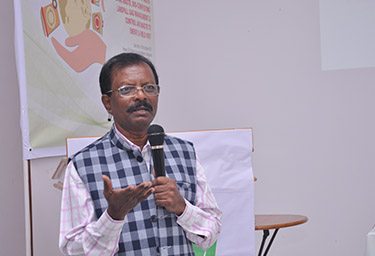
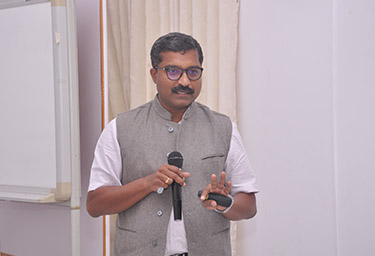
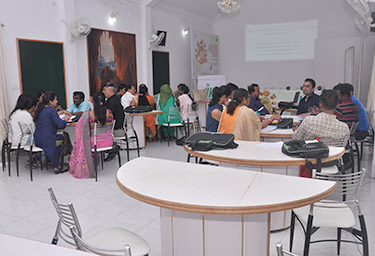
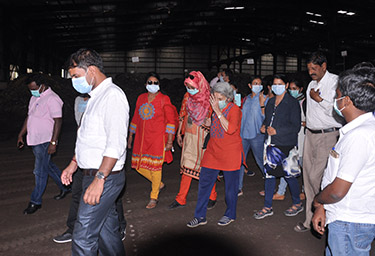
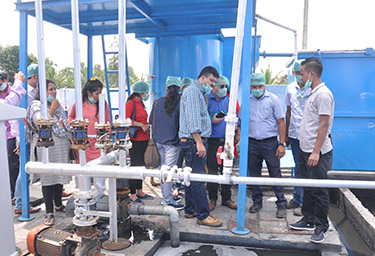
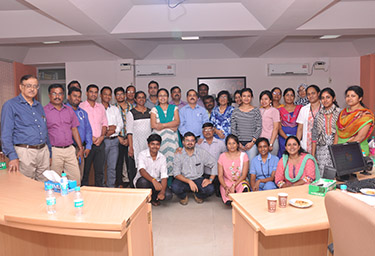
The International Institute of Waste Management (IIWM) organized a five day residential training programme on “Integrated Waste Management- Municipal Waste, Plastic Waste, Bio- medical Waste, Bio- Composting, Landfill Gas Management & Control and Waste to Energy & Field Visit” from 9th October to 13th October 2017 at Bengaluru, Karnataka, as part of Environmental Training Unit-Central Pollution Control Board’s approved training programme. The overall objective of the training programme was to understand the legal perspective of Solid Waste Management Rules, 2016, to gain indepth knowledge and technical details of Waste to Energy and management of Solid Waste, to identify the environmental impact, Resource efficiency and resource recovery aspects of Solid Wastes and to finally draw up an action plan to ensure effective waste management.
A total number of 26 participants attended the training programme. Resource persons spoke on various aspects of Integrated Waste Management. The topics covered negligence of public to the upcoming waste management solutions in their locality, Comparison of the forms in the MSW Rules 2000 and SWM Rules 2016, Duties of the Central Government, State Government and Local Body in managing the waste, Sanitary landfill, the differences between the BWM Rules 1998 and 2016, Project financial management, various processing and treatment methods of MSW, Bioremediation of landfill, Management of landfill gas, Plastic Waste Management Rules 2016.
The participants were taken on field visits to M S Ramaiah Medical College and Hospital at MSRIT Post, Bangalore, Karnataka, M/s Medicare Environment Management (P) Ltd, Dobbaspete and Doddabidarakkalu Processing Plant, Karnataka. Group discussion was held among the participants and case studies were presented by them. The training programme concluded by providing key messages and recommendations and the participants were given opportunities to express their opinions about the programme.